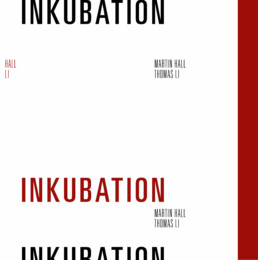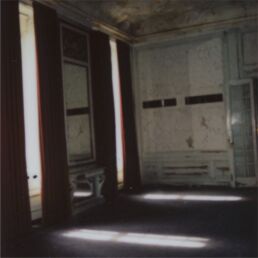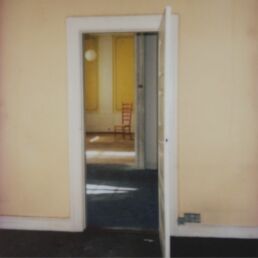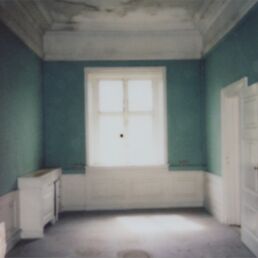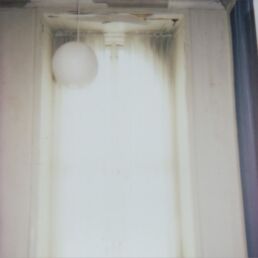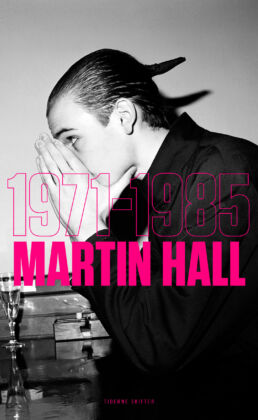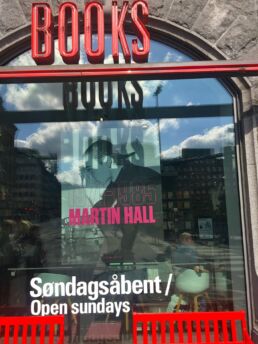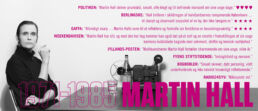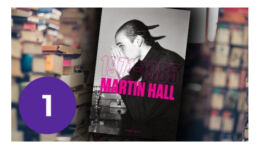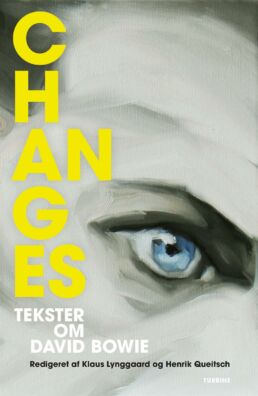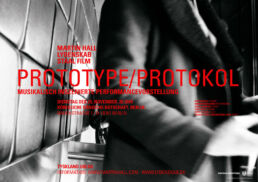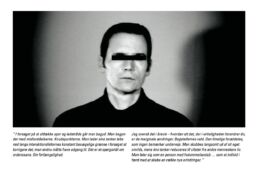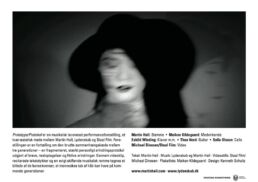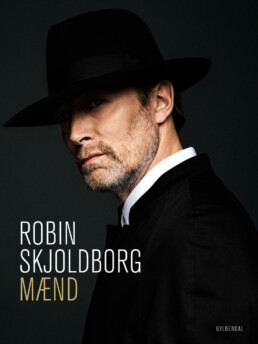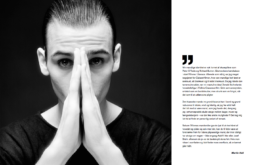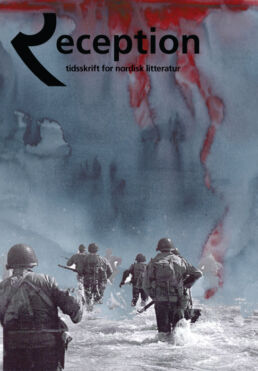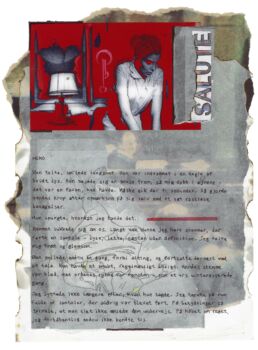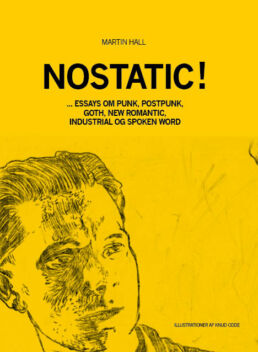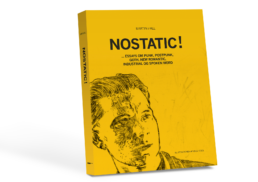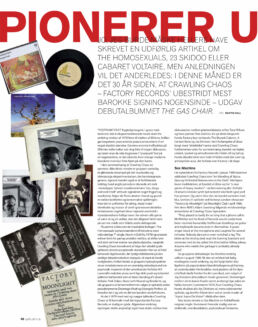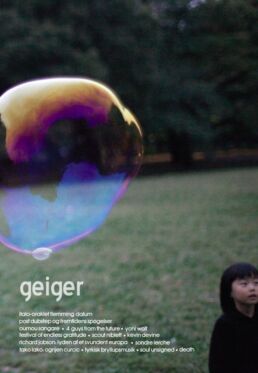BIBLIOGRAPHY
INKUBATION
INKUBATION
MARTIN HALL
PROSE
SEPTEMBER 2021
PANOPTIKON/METROPOLITAN ART (ISBN 978-87-93098-40-4)
Inkubation is a spoken word collaboration between Martin Hall and Thomas Li, a recording that merges poetry and electronic installation music. The title is released as a box set featuring a book, a double-LP and a cd in a limited edition of 250 numbered copies.
The title is also released as an e- and audiobook by Metropolitan Art.
Genre: Prose
Pages: 48
Design: Kenneth Schultz
Photos: Maiken Kildegaard
"It happens without any further dramatic attention. You just realize that there isn’t an awful lot of love left in your heart."
”An impressive spoken word box: At no point am I in any doubt about the authenticity. This is true, serious, necessary. Almost shockingly indisputable … Inkubation is a spoken word work that will stand the distance in all thinkable ways.”
( * * * * * )
Gaffa – Ivan Rod (September 14, 2021)
(Denmark’s biggest music paper)
“The six tracks that make up the installation are some of the most relentlessly experimental from Hall’s hand in many years … a remarkable piece of sound art and good poetry from the experienced shape-shifter.”
Seismograf – Simon Heggum (September 9, 2021)
(Danish sound art magazine)
“Each sentence is carefully considered, sullen, beautiful and apt … Inkubation is a meditative work of high caliber – a work that has to be experienced and not overlooked.”
( * * * * * )
Bogbobler – Isabel Fluxá Rosado (September 19, 2021)
(Danish literature site)
“Cool Hotel Hall: The time spent with this collection of modes in electronica/spoken word form – which can only be heard on this beautiful box set – is well spent.”
( * * * * )
Kristeligt Dagblad – Andreo Michaelo Mielczarek (October 19, 2021)
(Daily Danish newspaper)
“A lyrically brave and sonically important work made in collaboration with Thomas Li … a rare and wonderfully bitter combo.”
Bongorama – Peter Solak (August 25, 2021)
(Danish connoisseur site)
“Martin Hall at his peak.”
Modspor – Martin Minka Jensen (March 16, 2022)
(Danish literature site)
Inkubation consists of six new pieces of writing and represents a consecutive exploration of character mutation – the story is a combined personality study and love story. The music on the release is produced by Thomas Li who during the years before the recording had been heavily involved with the electronic music scene in Tokyo. By the same token Japanese musician Kazutaka Kuroki makes a guest visit on Inkubation.
Martin Hall and Thomas Li have earlier produced the two Hall albums Random Hold (1996) and Adapter (1999) together.
Inkubation is released with support from Augustinus Fonden, Koda Kultur, MPO and Danish Arts Foundation.
”An impressive spoken word box: At no point am I in any doubt about the authenticity. This is true, serious, necessary. Almost shockingly indisputable … Inkubation is a spoken word work that will stand the distance in every way.”
( * * * * * )
Gaffa“The six tracks that make up the installation are some of the most relentlessly experimental from Hall’s hand in many years … a remarkable piece of sound art and good poetry from the experienced shape-shifter.”
Seismograf“Each sentence is carefully considered, sullen, beautiful and apt … Inkubation is a meditative work of high caliber – a work that has to be experienced and not overlooked.”
( * * * * * )
Bogbobler“Cool Hotel Hall: The time spent with this collection of modes in electronica/spoken word form – which can only be heard on this beautiful box set – is well spent.”
( * * * * )
Kristeligt Dagblad“A lyrically brave and sonically important work made in collaboration with Thomas Li … a rare and wonderfully bitter combo.”
Bongorama“Martin Hall at his peak.”
Modspor
1971–1985
1971–1985
MARTIN HALL
PERIODICAL AUTOBIOGRAPHY
AUGUST 2017
TIDERNE SKIFTER/GYLDENDAL (ISBN 978-87-0223-8167)
Martin Hall’s long-awaited book 1971-1985 – at the time his first in five years – was released on the 17th of August 2017. The book is an autobiographical depiction of his formative years as a boy and a young man.
The publishers, Tiderne Skifter (a subsidiary of Gyldendal releasing the works of authors such as W.G. Sebald, Jean Rhys and David Lynch), wrote the following about the book in their press announcement:
“1971-1985 is a high-speed portrait of the Danish artist Martin Hall’s childhood and early youth, a teenage chronicle that focuses on a period of great personal and cultural impact in a rampant Copenhagen. From the rough black-and-white photos of the seventies to the following decade’s Polaroid pictures, from glam rock to punk and from Madame Arthur to Rockmaskinen at Christiania – the journey is long from General Franco’s catholic Spain, where Martin Hall lived as a young boy, to the liberated sex shops of Vesterbrogade.
Written in a simple, yet figurative language, he describes his parents’ reckless sense of adventure and the ruthlessness that characterized his adolescence, the alcoholic culture the seventies were soaked in as well as the sexuality and the political climate of the period. As a new generation cuts through previous norms and values, Hall’s personal journey and following formation as an artist during the early eighties reveals a story of great personal hope and tragedy, spiritual ferocity and loss.”
Genre: Periodical autobiography
Pages: 248
Design: Kenneth Schultz
Photo: Robin Skjoldborg
“They said the soil was barren due to the unrest of the dead.”
”Hall is brilliant in his depiction of a rampant Copenhagen in the seventies … the book is a sharp and observant snapshot of a city that no longer exists.”
( * * * * )
Berlingske – Mikkel Andersson (17.8.2017)
”Martin Hall has style, and with this book he manages to come close to the substance and the pain in the depiction of his early career’s harsh downside with suicides, drugs and chronic restlessness.”
Weekendavisen – Christian Dorph (18.8.2017)
”The multifacetted artist Martin Hall tells a charming tale of his early, wild years.”
Jyllands-Posten – Christian Møgeltoft (23.8.2017)
”Martin Hall writes unadorned, beautifully, often wise and most of the time relievingly funny about his youth and early days.”
( * * * * )
Politiken – Henrik Vesterberg (26.8.2017)
”Needle-pointed wit … the book kindles you and you’re moved as you enter its many rooms.”
Radio24Syv – Morten Lindberg (27.8.2017)
”Beautifully written, deeply personal, wildly entertaining and, not least, convincingly reflective.”
Bogbobler – Isabel Fluxá Rosado (1.9.2017)
“Insightful and amusing.”
Fyens Stiftstidende – Martin Kloster (2.10.2017)
”Incredibly sharp … Martin Hall’s ability to reflect and convey his understanding is admirable.”
( * * * * )
GAFFA – Ivan Rod (18.10.2017)
”A clear must read … a catchy mix of sober observation and thoughtful reflection.”
Modspor – Martin Minka Jensen (29.10.2017)
“Best autobiography of the year.”
DR – Flemming Møldrup (10.11.2017)
PRELUDE
I often imagine the story behind it all: Two people framed in cones of light. Their meeting. The detonation of bright summer nights and whispering voices – how they think, it’s all going to be fine.
Later she tells him, what’s about to appear; watches the face in front of her, light-hearted and nervous at the same time.
He tells her, it’s great.
Then she cries a bit, more of relief than joy. Basically, she doesn’t care – that’s how colossal the love she feels for the new life in her body is.
I imagine the copper-like smell of blood at the birth, the redeeming power of a ruthless force. How her touch falls with a snow-like softness on the new, yet familiar skin. Whispered words, air currents of formless breath.
Later on the infant in a cradle, sleeping with its legs spread out like a supermarket chicken. People who observantly watch the new life, foreign sets of lungs consuming the air in the room. Distant, haunting voices.
Days that start with brilliant sunshine, then slowly disperse into a haze. The grainy, white liquid of dreams. Baptism, serpentines and layer cake.
A boy in a closet. Intricate manners of speaking, pauses and empty glances. Everybody’s struggle to breathe.
A first draft of the book was ready to be released in the summer of 2016 by the publishing house People’s Press. Shortly before signing the contract, however, Hall chose to withdraw the book for personal reasons.
The final edition of 1971-1985, released by Tiderne Skifter in 2017, is a revised and expanded version of the original manuscript. The book is released with support of The Danish Arts Foundation.
In the beginning of 2018 Gyldendal (Denmark’s largest publishing house) released a new edition of 1971–1985.
On the release day of the book Hall met the literary editor at Jyllands-Posten, David Jacobsen Turner, met for a short talk about the book in a packed Politikens Boghal. The week after its release, 1971–1985 went top 10 at Bog & Idé’s sales chart (Denmark’s largest bookstore chain).
In relation to the annual Book Forum, the host of the Danish Broadcasting Corporation’s weekly literary review Crazy about books, Flemming Møldrup, appointed the book to be the best autobiography in 2017.
“Martin Hall writes unadorned, beautifully, often wise and most of the time relievingly funny about his youth and early days.”
( * * * * )
Politiken (Danish equivalent to The Guardian)“Hall is brilliant in his depiction of a rampant Copenhagen in the seventies … the book is a sharp and observant snapshot.”
( * * * * )
Berlingske (Danish equivalent to The Times)”Incredibly sharp … Martin Hall’s ability to reflect and convey his understanding is admirable.”
( * * * * )
GAFFA (Scandinavia’s biggest music magazine)“Martin Hall has style, and with this book he manages to come close to the substance and the pain in the depiction of his early career’s harsh downside with suicides, drugs and chronic restlessness.”
Weekendavisen (Danish equivalent to New York Times Literary Review)“The multifacetted artist Martin Hall tells a charming tale of his early, wild years.”
Jyllands-Posten (Denmark’s biggest newspaper)“Insightful and amusing.”
Fyens Stiftstidende (major regional newspaper)“Best autobiography of the year.”
DR (Danish Broadcasting Corporation)
CHANGES
CHANGES
ANTHOLOGY
NOVEMBER 2016
TURBINE (ISBN 978-87-406-1217-2)
The Danish book Changes is a literary statement about David Bowie’s legacy written and edited by the Danish journalists Klaus Lynggard and Henrik Queitsch.
Originally the book was planned to mark the singer’s 70th birthday in January 2017, but when Bowie died in the beginning of 2016 the editors wanted the writing to become a collective memory written by a line of Danish artists and journalists.
Apart from the two main authors the book includes reflections and essays written by contributors such as Martin Hall, Asger Schnack, Kristian Leth, Benn Q. Holm, Ralf Christensen, Jakob Levinsen, Lars Movin, Jens Unmack, Jan Laursen, Bo Green Jensen, Signe Høirup Wille-Jørgensen, Søren E. Jensen, Lars Bukdahl, Nicolaj Stochholm, Katrine Nyland Sørensen, Anna Ullmann, Anne Sperling, Pernille Jensen and Kira Skov.
The cover is made by the Danish painter Lars Ravn. The book is designed by Sigrún Gudbrandsdóttir.
PROTOTYPE/PROTOKOL
PROTOTYPE/PROTOKOL
MARTIN HALL/LYDENSKAB/STAAL FILM
PROGRAM
NOVEMBER 2014
In November 2014 Martin Hall wrote and directed the performance play Prototype/Protokol, an inter-aesthetic meeting between Martin Hall, the avant-garde ensemble Lydenskab and Staal Film. In this relation a program containing stills and texts from the show was made available to the guests.
Prototype/Protocol is a story based on the broken chain of connection between three generations – a fragmented, highly personal memory protocol made up of letters, recordings and fictitious memories.
Via videos, recited pieces of text and an ever-changing musical setting a collage-like story is told – a story about consequences; how the loss of hope in one generation may affect the next.
The lyrical content of the show is both abstract and easily recognizable, an emotional biopsy of personal decline.
During November 2014 the play was performed at KØS (Museum for Art in Public Spaces) in Køge (14/11), Gran Teater in Aarhus (16/11), Københavns Musikteater in Copenhagen (21/11) and The Royal Danish Embassy in Berlin (25/11).
In August 2015 it was staged once again in relation to Odense Spoken Word Festival (21/8).
Martin Hall: Voice
Maiken Kildegaard: Performer
Eskild Winding: Piano (Lydenskab)
Thea Vesti: Guitar (Lydenskab)
Sofia Olsson: Cello (Lydenskab)
Michael Dinesen/Staal Film: Video
Design: Kenneth Schultz
Cover photo: Maiken Kildegaard
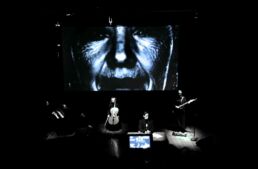
“In the attempt to uncover clues and traces you go backwards. You begin with the misunderstandings. The nodes. You let your thoughts run along a constantly moving boundary of interacting fields, in an attempt to correct what you still have access to. It’s a matter of tidiness – of plain vanity.”
MEN
MEN
ROBIN SKJOLDBORG/ROBERTO ZACHARIAS
PHOTO AND INTERVIEW BOOK
NOVEMBER 2014
GYLDENDAL (ISBN 9788702165838)
The book Men (“Mænd”) consists of a selection of Danish top photographer Robin Skjoldborg’s male portraits taken in the period between 1984 and 2014. Among the recurrent faces portrayed in the 256 pages thick volume you’ll find artists such as Martin Hall and Jesper Binzer, singer in one of the most successful Danish rock bands ever, D.A.D.
The theme of the photo- and debate book is male identity – i.e. sexuality, gender and values. Towards this end the journalist Roberto Zacharias has interviewed a line of the portrayed artists such as Danish filmmaker Jørgen Leth, actor Lars Mikkelsen (featured on the front cover of the book), the rock groups Kashmir and Nephew and ultimately Martin Hall. It probably comes as no surprise that the latter is the far most outspoken in this selection of masculine profiles.
COMPARISONS OF MONOPOLIES OF VIOLENCE
COMPARISONS OF MONOPOLIES OF VIOLENCE
MAGAZINE
MAY 2014
TIDSSKRIFTET RECEPTION (ISSN 1903-7088)
The academic journal Reception is a magazine for Nordic literature. In relation to the 150th anniversary of the second Schleswig War and the 100th anniversary the outbreak of World War 1, #72 of the magazine is a special issue about war – about the imprint of war in both Danish and Nordic literature. In this relation Martin Hall was invited to write an essay that directly or indirectly should reflect on the Cold War’s influence on Denmark.
Hall’s contribution to the magazine is the text ”Comparisons of Monopolies on Violence”, an article that begins by recounting an experience he had during his childhood years in Spain where he lived as child with his family from 1971 to 1972 – a period in which the fascist-oriented General Franco still ruled the country.
Other contributors to Reception #72 include Hans Hertel, Christel Wiinblad and Theis Ørntoft.
You can download the magazine here:
MEMO
MEMO
POSTER (SPECIAL PRINT)
JULY 2013
DET BRUUNSKE PAKHUS
In collaboration with Det Bruunske Pakhus Martin Hall released the graphic work Memo in July 2013, a reproduction of an original piece of artwork combining poetry, painting and drawing.
The print is published in the format 61 x 45 cm and was made available in 100 numbered and signed copies.
All profits from the sale went to Det Bruunske Legat, a grant given to a young musical talent.
The artwork is made by Hall. Its photographic motive is based on a Christian Skeel work.
NOSTATIC!
NOSTATIC!
MARTIN HALL
ESSAYS
OCTOBER 2012
GAFFA FORLAG (ISBN 978-87-90575-13-7)
Nostatic! is a book gathering Martin Hall’s most extensive essays about the (primarily) European music scene 1977–1984. The book is illustrated by the Danish painter and musician Knud Odde.
The title consists of twelve chapters, articles and essays about the genres punk, postpunk, goth, new romantic, industrial and spoken word that Hall wrote for the Danish music magazine GAFFA during 2011 in relation to a given occasion (such as a jubilee or a reunion of a band).
Martin Hall’s series of writings can be read as a coherent tale about the period and the music scene around 1980, a cultural happening that had great impact on the writer’s own life as a teenager.
Nostatic! is a journalistic enquiry that doesn’t merely present its reader to a line of portraits of bands and artists, but also unravels the influences and circumstances of the era through references to matters such as situationism, amphetamine, French lyricism and Satanism.
Genre: Essays (illustrated)
Pages: 232
Design: Katrine Skriver Christensen
Drawing: Knude Odde
“Martin Hall keeps a fine balance between his vast knowledge and his burning commitment. In short, he writes with style.”
( * * * * * )
Jyllands-Posten (Denmark’s biggest newspaper)
”Martin Hall writes well and appetizing. The book is unsentimental all the way through, interesting and the handling of the individual subjects is distinctly catching.”
( * * * * )
Politiken (the Danish equivalent to The Guardian)
“Outstanding essays: Even at the level of details the book is eminent.”
( * * * * * )
Fyens Stiftstidende (major regional newspaper)
PIONEERS WITHOUT A PURPOSE
PIONEERS WITHOUT A PURPOSE
MAGAZINE
JANUARY 2012
GAFFA (ISSN 1901-2624)
In relation to the 30th anniversary of the English post-punk act Crawling Chaos’ debut album The Gas Chair Martin Hall wrote an exclusive essay about the group for Gaffa, Denmark’s biggest music magazine.
The article was part of a series of features that Hall wrote about the British music scene 1977–1984 for Gaffa during 2011 and 2012.
You can find a pdf version of the article here:
THE SOUND OF A LONG GONE EUROPE
THE SOUND OF A LONG GONE EUROPE
MAGAZINE
NOVEMBER 2011
GEIGER (ISSN 1600-8871)
In relation to the 30th anniversary of the Scottish singer, poet and filmmaker Richard Jobson’s spoken word album The Ballad of Etiquette Martin Hall paid homage to the artist with an extensive essay about the man and his art to Danish connoisseur magazine Geiger (#21).
During the eighties Jobson recorded a line of spoken word records on the legendary Belgian label Les Disques du Crépuscule on which he reworked several stories of the French writer Marguerite Duras (1914–1996). It is particularly the literary aspect of Jobson’s artistic endeavours that Hall focuses on in the article.
You can find a pdf version of the essay here:

